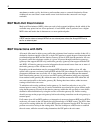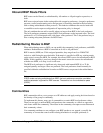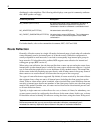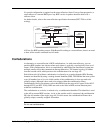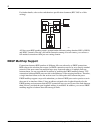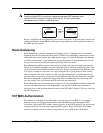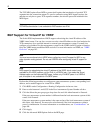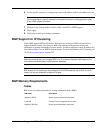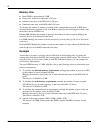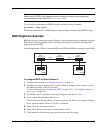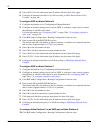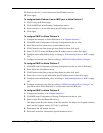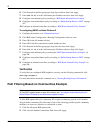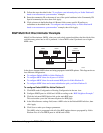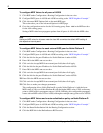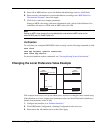
9
414 Nokia Network Voyager for IPSO 4.0 Reference Guide
Memory Size
Base IPSRD is approximately 2 MB
Route entry in the local route table is 76 bytes
Inbound route entry in the BGP table is 20 bytes
Outbound route entry in the BGP table is 24 bytes
To calculate the amount of memory overhead on the routing daemon because of BGP peers,
calculate the memory required for all of the RIBs according to the following procedures. Add
the result to the base IPSRD size.
Inbound RIB: Multiply the number of peers by the number of routes accepted. Multiply the
result by the size of each inbound route entry.
Local RIB: Multiply the number of routes accepted by a local policy by the size of each local
route entry.
Outbound RIB: Multiply the number of peers by the number of routes advertised. Multiply the
result by the size of each BGP outbound route entry.
Example
Assume that a customer is peering with two ISPs that are dual homed and is accepting full
routing tables from these two ISPs. Each routing table contains 50,000 routes. The customer is
only advertising its local routes (2,000) to each ISP. With these figures, you can compute the
total memory requirements:
The base IPSRD memory is 2 MB. Add this value to the following values to calculate the total
memory requirements.
1. To calculate the inbound memory requirements, multiply the number of peers (two ISPs)
by the number of routes accepted (50,000).
Multiply the resulting value by the size of each inbound route entry in the BGP table (20
bytes).
The answer is 2,000,000 or 2 MB.
2. To calculate the local memory requirements, multiply the number of routes accepted
(50,000) by the size of each route entry in the local route table (76 bytes).
The answer is 4,000,000 or 4MB.
3. To calculate the outbound memory requirements, multiply the number of peers (only one
customer) by the number routes advertised (2,000).
Multiply the result by the size of each outbound route entry in the BGP table (24 bytes).
The answer is 48,000 or 50 K.
4. Add all of the results together (2MB + 2MB + 4MB + 50K).
The answer is 8.05MB, which means that IPSRD requires 8.05MB of memory for this
example.



